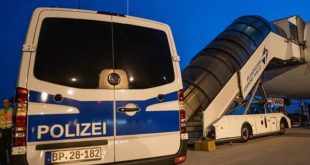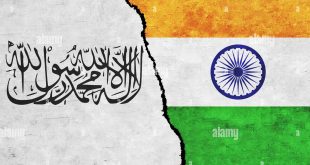AT Monitoring Desk-KABUL: Pakistan Prime Minister’s Special Envoy on Kashmir Senator Mushahid Hussain Syed has said that peace in Afghanistan links to the resolution of the Kashmir issues and said a solution to both is required for peace.
For the first time, Pakistan has linked peace in Afghanistan to the resolution of the Kashmir issue, saying a solution to both is required for peace and they cannot be “compartmentalized”.
“Road to peace in Kabul lies in Kashmir in the sense that when you talk of peace, you cannot compartmentalize peace, you can’t segregate a section… ok you can have peace in Kabul and let Kashmir burn. That is not going to happen,” Pakistan Prime Minister’s special envoy on Kashmir Senator Mushahid Hussain Syed said in Washington.
“So you (US) talk of a comprehensive peace settlement, so let the people of South Asia not be hostage to the hostility of the past. Let them move forward,” said Syed, Chairman of the Pakistan Senate’s Defense and Defense Production Committee said during an interaction at Washington-based think-tank Stimson Centre.
He is accompanied by Shezra Mansab, a member of the National Assembly of Pakistan, as Special Envoys of Pakistan Prime Minister on Kashmir.
“Our core issue this time is Kashmir and no peace can prevail in the region, if this issue is not solved. It is an international dispute. It is not an internal problem. The stakes are very high now, we are nuclear neighbors so we need to have peace on the issue of Kashmir and then rest of the things can be solved,” Mansab said.
“Prime Minister Nawaz Sharif has offered peace talks “without any preconditions” but it has been consistently rejected by India, she added.
“The way to move forward is negotiations. We are ready to talk on any subject. It is India which says that it is willing to talk about only one subject. We are ready to talk on that subject as well as other subjects,” she said.
Referring to the lackluster response that they received during their visit to Washington DC, Michael Krepon of the Stimson Centre asked as to why the US should interfere in this.
“Why, when it is so hard for the US to my embarrassment to get involved in more helpful way in Syria, why should the US listen to the argument to be more involvement in Kashmir,” Krepon said, adding that the situation in Kashmir is much better than many other conflict prone areas of the world, including Syria.
The two Pakistani envoys had no clear explanation to it.
“We request the US to intervene, because it has leverage with India to allow negotiations to start, to end human rights violations in Kashmir, to make sure that the UN resolutions are implemented,” Syed said.
“We are facing the consequences of bad decisions made in London, Brussels or Washington,” he said.
In a respond to a query, Syed said Pakistan is willing to “do anything” what India asks for confidence building measure so as to start negotiations.
He, however, had no justifiable explanation on India seeking actions against terrorist groups, including Hafeez Saeed. Syed argued that India has not provided enough evidence to take concrete action against the 26/11 mastermind.
“Regarding Jaish-e-Mohammad thing, it takes two to tango. If India is now planning to host separatists from Pakistan who have also been involved in killing of people. And India is naming the province of Balochistan at the level of the Prime Minister. What would happen if Prime Minister Nawaz Sharif starts talking of Khalistan, Nagaland, Tripura, Assam, Sikkim or the Maoist insurgency… we do not want to do that because that is interference in the internal affairs of a neighboring country. You are changing the rules of the game it becomes tit for tat,” he said.
“We would say give us all the evidence that you have about Masood Azhar,” he said.
“Pakistan’s legal process (on Mumbai attack) is already moving. We are waiting for some evidence, which was not provided by the Indian side. We are moving on that,” Syed said.
 Afghanistan Times
Afghanistan Times



